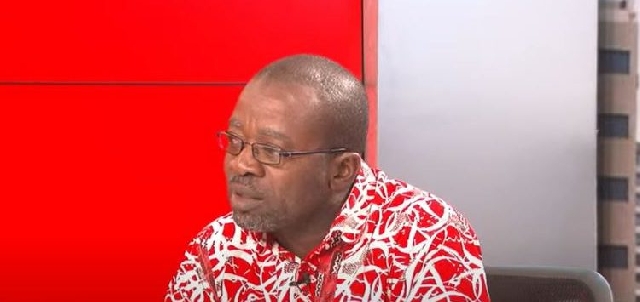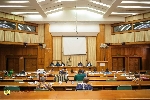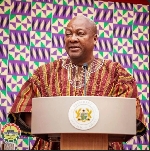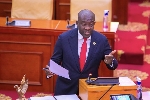Ethnicity and religion do not determine election outcomes in Ghana-Asah-Asante
 Dr Kwame Asah-Asante
Dr Kwame Asah-Asante
A political science lecturer at the University of Ghana in the Greater Accra Region, Dr. Kwame Asah-Asante, has dismissed the notion that ethnicity and religion play a decisive role in determining electoral outcomes in Ghana.
Speaking during an interview with Adakabre Frimpong Manso on Accra-based Neat FM on Wednesday, July 9, Dr. Asah-Asante addressed the topic “The Loss of the NPP in the 2024 Elections, the Prospects of the Party in 2028, and Restoring the UP Tradition.”
According to him, while ethnic and religious identities may influence political discourse to some extent, they are not the primary factors that determine who Ghanaians vote for, especially in presidential elections.
“It is not the case in Ghana that a person is voted for simply because of their ethnicity or religion,” he asserted.
“These factors may play a role in shaping perception, but they do not determine the outcome of elections.”
To support his position, Dr. Asah-Asante cited the example of former President Jerry John Rawlings, who hailed from the third-largest ethnic group in the country, yet managed to win two decisive election victories.
“Rawlings came from a minority ethnic group but was overwhelmingly endorsed by the Ghanaian electorate.
That alone shows that competence and national appeal matter more than tribal affiliations,” he explained.
Touching on the role of religion, he pointed out that although Muslims form the second-largest religious group in Ghana, they have consistently voted based on diverse considerations rather than religious loyalty.
“If religion were the yardstick, we would have seen Muslims across the country rally behind a specific candidate in the 2024 elections—but that didn’t happen,” he said.
Dr. Asah-Asante urged political commentators and analysts to refrain from using religion or ethnicity as simplistic explanations for voting patterns, noting that Ghanaians are increasingly focused on policies, leadership qualities, and party performance.
He called for a shift in political analysis that emphasises governance, accountability, and development rather than divisive identity politics.
Source: Classfmonline.com/Cecil Mensah
Trending News

COCOBOD CEO engages Council of State on reforms to sustain cocoa sector
09:38
Foreign Affairs Ministry announces two new appointments
15:43
W/R: 2 arrested over viral assault video involving teenagers at Effiakuma
20:02
Mahama unveils initiatives to boost healthcare, food security and education
13:49
Empowering Ghana’s future: Japan’s scholarship programme drives a new era of Ghana-Japan co-creation and leadership development
18:50
Age should not define Leadership – John Alexander Ackon backs Dr. Frank Amoakohene’s performance in Ashanti Region
11:11
O/R: Police seizes cannabis worth over GHS1.4m from impounded truck
19:31
Teachers and parents demand sacking of Anloga District Education Director over alleged mismanagement
18:20
Kojo Oppong Nkrumah slams gov't's 24-Hour Economy law as 'PR stunt,' says it lacks legal muscle
12:24
Ramadan fasting slows voting in Ayawaso East by-election
09:59



